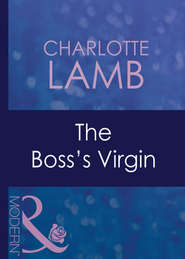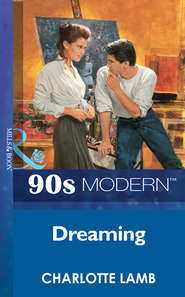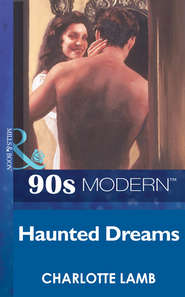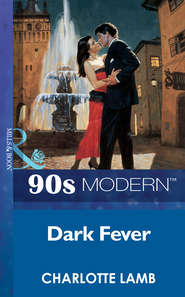По всем вопросам обращайтесь на: info@litportal.ru
(©) 2003-2025.
✖
Wounds Of Passion
Автор
Год написания книги
2018
Настройки чтения
Размер шрифта
Высота строк
Поля
The brigadier took a deep breath and said rather stiffly, ‘Mr Ogilvie, it is my duty to offer you a most sincere apology on behalf of myself and this company of Carabinieri. We accept your innocence of the charge, and you are entirely free to leave.’
Patrick was so tired that for a minute he didn’t understand. ‘What are you talking about?’
‘You are free to go, Mr Ogilvie,’ repeated the brigadier. ‘The man who attacked Miss Cabot is in custody in San Remo—he raped another girl, there, last night, and was caught, and, during interrogation, confessed to having tried to rape Miss Cabot. When his hotel room was searched certain objects were found, which had been taken from Miss Cabot during the attack; a ring and some underwear. There is no doubt—he was the man.’
Patrick sat as if turned to stone. ‘Was he English?’
The brigadier nodded. ‘I gather he does have a superficial resemblance to you, too. The same colouring, build, height. That must have been what deceived Miss Cabot into believing it was you.’
Patrick did not believe that. She had described him to the police because she had resented the way he walked away from her after she asked him to dance. Oh, it might have been an unconscious response; but Patrick did not believe it was pure coincidence.
‘We will be happy to drive you back to the villa in a police car, right away,’ the brigadier said.
Patrick shook his head. ‘Am I free to leave Italy? I would rather return to my hotel in Nice immediately, if that is OK with you. I don’t want to go back to the Holtner villa. Could my belongings left there be sent on to me? Could you arrange that? I don’t want to see any of those people again. If you need my evidence later, of course, I’ll come back, any time.’
The brigadier was eager to cooperate, to do as he wished. A car took Patrick over the border that night, back to his hotel in Nice. He stayed there a few more days, mostly alone in his room, lying on his bed, sleeping and waking, obsessed with the events of those days and nights.
They never did call him to give evidence; Patrick read about the case later, in the Italian papers, and discovered that the arrested man had been convicted of a series of rapes along that coast that summer. Antonia Cabot’s name was only one among many and she had not even been called to give evidence.
Rae came to see Patrick in Nice a few days later. She had rung first, found him out, and left a message to say she was coming. He was waiting.
They went for a walk through the narrow, labyrinthine streets of the old town, with its medieval houses and street markets, crumbling plaster on walls, geraniums tumbling down from pots on balconies and ancient shutters with cracked and blistered paint, and made their way up alleys and through tiny cobbled squares.
‘I don’t know what to say; it’s been terrible. It must have been a nightmare for you,’ Rae told him, giving him uncertain, nervous sideways looks.
‘Yes,’ said Patrick grimly, unsmiling.
‘They questioned me about you for hours,’ Rae said.
He had guessed that, guessed where the brigadier was getting all his inside information from, who was giving them clues about his mental condition, his possible motive for attacking a woman. There was only one person who knew all about Laura, all about Patrick’s moods since his engagement was broken off.
Rae stared at his hard profile, burst out, ‘Oh, Patrick, I’m sorry. I feel so badly about this. I never thought you did it; I know you better than that! But...but...they seemed so sure; they said she had identified you, and you were in such a strange mood, you were angry over Laura, you were upset—I didn’t know what to think.’
He stopped, his hands driven deep into the pockets of a black linen jacket he was wearing over black jeans, and stared broodingly over the steep streets of old Nice falling away below them.
‘What do you want me to say, Rae? That I understand? That I forgive you for believing I could have tried to rape a young girl?’
‘I didn’t believe it, Patrick!’
He turned and looked at her directly, his face bleak. ‘Oh, yes, you did, Rae. I saw your face when they were driving you away. That girl identified me, God knows why. You believed her, although you’ve known me pretty well for a long time, and you fed the police with the sort of evidence they needed to convince them I had a motive, too. If it wasn’t for sheer damned luck I might be waiting trial now, on that charge, with very little hope of getting off. So if you’re expecting me to say I forgive you and it doesn’t matter that you believed I was a vicious rapist, I’m afraid you’re out of luck.’
She bit her lip, very pale. ‘Of course I know how you must feel—’
‘I doubt it! A month ago I would have described myself as a very happy man—I was about to marry the woman I loved, I was doing work I found exciting, I had friends I thought liked me, cared about me. And then it all fell apart. I found myself in a police cell, my engagement off, Laura gone, being accused of attempted rape, and finding myself suddenly without any friends, not even you, Rae. No, I don’t believe you have a clue how I feel.’
Rae looked uneasily at him. ‘You’ll get over this; work is what you need to help you forget. Maybe you should start work on the next set of illustrations sooner than we planned?’
‘No,’ Patrick said with force. ‘I’m not working with you any more, Rae.’
‘Don’t be too hasty about this; you’ll feel differently when you’ve had a few weeks to get over the shock.’ Rae was still trying to tell him what he felt, what he thought.
He looked coolly at her. ‘No, Rae. I have made up my mind.’
She went red then, angry and flustered. ‘You can’t break our contract, Patrick! The publishers wouldn’t let you walk away. You have a legally binding contract for this series, remember!’
‘If I had gone to prison for attempted rape, would you still have wanted me to illustrate your books?’ he bit out. ‘Would the publishers talk about legally binding contracts? Or would you all get the best possible lawyers to find a way of breaking our contract?’
Rae stared at him without answering. She didn’t need to reply; they both knew what would have happened if he had been convicted.
‘Goodbye, Rae.’
He turned and walked away, down the alleys and winding streets of Old Nice, towards the blinding blue of the Baie des Anges. He didn’t know what he would do now. His future was utterly empty—without a job, without Laura, without any clear idea of what he wanted to do. All he knew was that he was angry; very angry. With Laura, with Rae, with fate, but most of all with that girl, Antonia Cabot.
He hoped he would never see her again, because if he did he wouldn’t be responsible for his actions, and, just though he felt his rage to be, the girl had been through a terrible ordeal, too. Whatever her reasons for accusing him, whether it had been conscious resentment or unconscious hostility, she had suffered enough; he had to walk away and just shrug off his anger with her, which did not make it any easier to bear.
Bottled up and suppressed, his rage simmered inside him for the next two years, fed by his nightmares, by his new realisation of just how fragile was the identity, how easy to break.
He drew on the savings he had, studied art in Rome for a year, and then moved on to Florence to study there, living in the cheapest student accommodation, eating bread and cheese and fruit, drinking rough cheap wine, and earning some money at weekends by working in a bar at night, painting portraits of tourists in the streets by day.
One of his tutors got him a job each summer, during the vacations, in Venice, as a courier with an international holiday company, shepherding tourists around the city, helping them find postcards, and presents to take home, finding them when they got lost, and getting them where they had to be each day.
And then one day as summer ended, before art classes began again, he was on a vaporetto crossing the Grand Canal, from St Mark’s square to the Accademia, where he meant to sit for an hour in front of the work of Giovanni Bellini, the artist he was concentrating on that week. He had his sketchpad under his arm, pencils, charcoal and crayons in his pockets; his mind was full of his favourite Bellini, the Virgin and child.
There was a little huddle of people on the riva, waiting for the vaporetto to arrive. Patrick idly glanced at them and then went rigid, staring.
Among them was Antonia Cabot.
There was no doubt about it, although she had changed. She didn’t look so young any more; she didn’t dazzle like a candle-flame. She was subdued, snuffed out, in a dark blue dress, cotton, a simple sleeveless tunic, and over that a short black cotton jacket.
Her pale gold hair had been cut very short, giving her the head of a boy; she had lost a lot of weight, was skinny, almost fleshless, and although this was a very hot summer she was pale, as if she rarely went out.
She was staring at the reflections on the water—the shimmering dancing images of churches, palaces, houses, rose-pink, aquamarine, cream.
As the vaporetto chugged slowly into place she stiffened, staring down at the reflection of it swimming towards her, the reflections of the faces of passengers. Of Patrick. Slowly, Antonia Cabot looked up, straight into Patrick’s brooding eyes.
He grimly watched the last vestige of colour drain from her face, the stricken look come into it, the darkening of her sea-coloured eyes, the trembling of her generous mouth.
Then she turned and fled, away from the Accademia, up a side-street, her small black shadow running ahead of her on the painted walls.
Patrick had to wait until the vaporetto had docked and the barrier had been raised before he could jump ashore and set off after her.
CHAPTER THREE
ANTONIA CABOT thought for a moment that she was seeing things. She stared down at the canal, watching his face quiver on the surface of the water.
It was the face she had seen so many times in nightmares, the face which had haunted her for the past two years. For a long time she had been afraid to go to sleep. She had sat up all night, heavy-eyed, white-faced, because she was afraid of meeting that face in her dreams.
Even now, although it happened less and less often, she still woke up shaking from one of those dreams every so often; and even when she was awake she wasn’t safe; something would trigger a memory and she would catch herself thinking about him.











